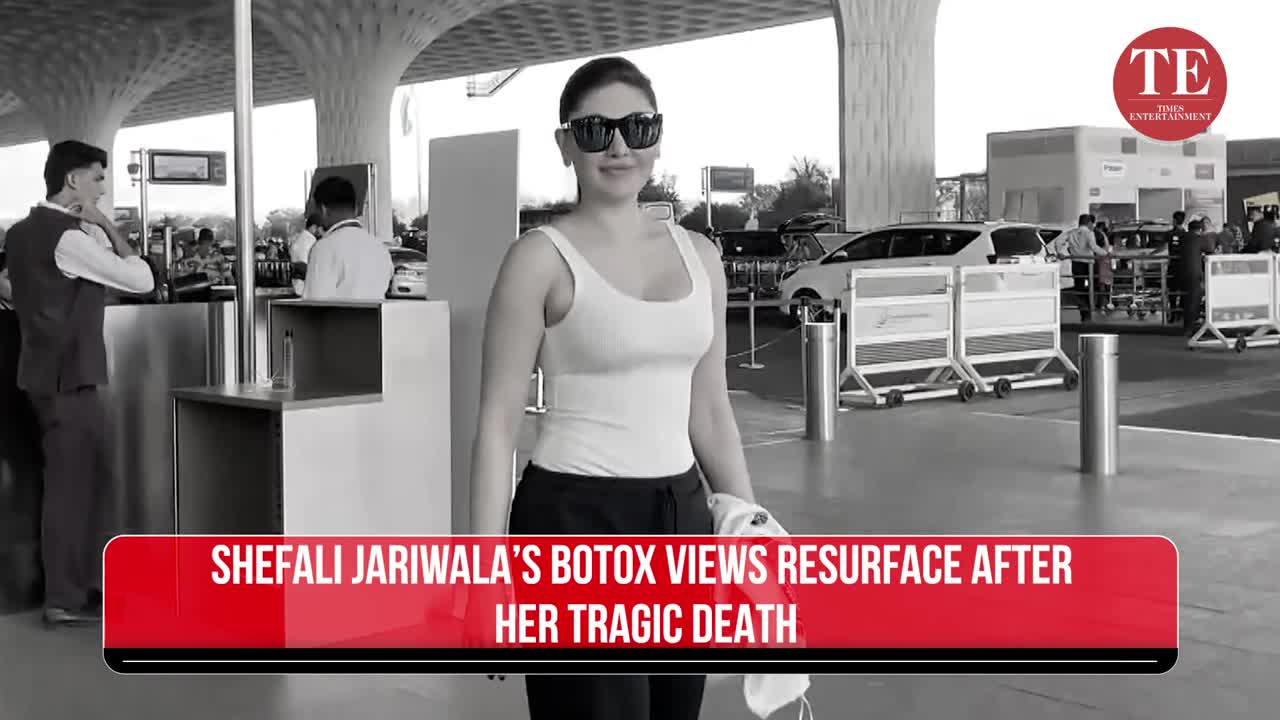Shefali Jariwala's Death Sparks Anti-Ageing Treatment Debate

Following the sudden and tragic death of actress and dancer Shefali Jariwala, a past interview where she openly endorsed Botox and skin treatments has resurfaced and gone viral. In the clip, Shefali confidently stated her “pro-Botox” stance, believing there is nothing wrong with wanting to look good responsibly with the right doctors. She emphasized that everyone, including celebrities, desires confidence in their appearance and should not be judged for enhancing their looks. Her conviction has ignited fresh conversations on beauty standards, self-care, and the pressure of aging gracefully in the public eye, highlighting the broader debate surrounding cosmetic and anti-aging treatments.
This discussion extends to numerous anti-aging skin treatments, many of which rely on borderline unsubstantiated claims. For instance, glutathione, a naturally occurring antioxidant vital for tissue repair and immune support, has become extremely popular for achieving “glass skin” and skin whitening, especially in injectable forms. While used for decades to reduce chemotherapy toxicity, its emergence in skincare over the last fifteen years has focused on its anti-melanogenic effect. However, senior dermatologists caution that there is little scientific evidence that injectable glutathione lightens skin or makes anyone look youthful. Dr. Kabir Sardana from RML hospital points out that a small study in the Philippines showed it turning melanin from brown to red, not white, and no robust clinical trials prove its efficacy for making darker skin fairer, despite its wide use for “glowing skin.”
The dangers are compounded by the fact that many of these products are sold as supplements or nutraceuticals, governed by less stringent food safety regulations rather than drug rules. This ease of access in pharmacies and online promotes self-medication. While generally safe when used by qualified medical practitioners within recommended dosages (typically 600mg to 1.2 grams per day), misuse, often involving higher doses in pursuit of faster results, can lead to serious health risks. Reported side effects of glutathione injections can include skin rash and Stevens-Johnson Syndrome, though minor complications like swelling and bruising are more common. Rarely, severe allergic reactions like anaphylaxis can occur, or vascular occlusion due to improper technique.
Other popular treatments include Platelet-Rich Plasma (PRP) injections, which involve drawing a person’s blood, concentrating the platelets rich in growth factors, and injecting them to stimulate collagen production and improve skin texture. However, like glutathione, PRP is not approved by the US Food and Drug Administration for anti-aging, and studies, particularly 'double-blind' trials, have not shown such benefits. Similarly, NAD (nicotinamide adenine dinucleotide) plus injections, touted for slowing aging signs like pigmentation and wrinkles by replenishing declining NAD stores, have shown limited efficacy in human studies due to small sample sizes.
In contrast, fractional energy devices, such as lasers and radiofrequency (RF) technologies, are widely used by skincare professionals and have stronger scientific backing. These devices apply calibrated heat energy, often through micro-needles, to trigger enhanced collagen production. Dr. Sardana notes strong histological data from RML hospital proving their effectiveness in rejuvenating skin and treating scars, calling it a “single intervention backed by strong evidence.”
Despite varying degrees of scientific support, experts universally warn against the misuse of these treatments. Dr. Mahnaz Jahan Begum and Dr. Chytra V. Anand highlight a “dangerous rise in self-prescribed anti-ageing fads,” encompassing unregulated hormones, peptides, excessive supplements, and intravenous drips. They emphasize that while some therapies are grounded in emerging science, many remain poorly regulated, especially outside clinical settings. Professionals urge individuals to prioritize health over youth, advising that one should “Always seek doctor-led care, not social media shortcuts,” to ensure safety and responsible choices in cosmetic enhancements.









